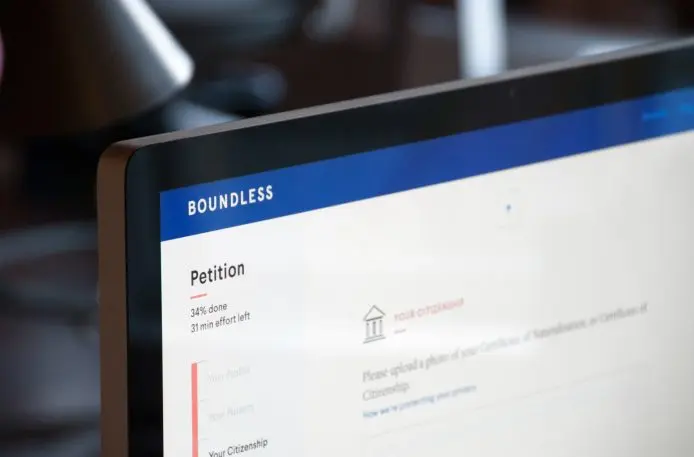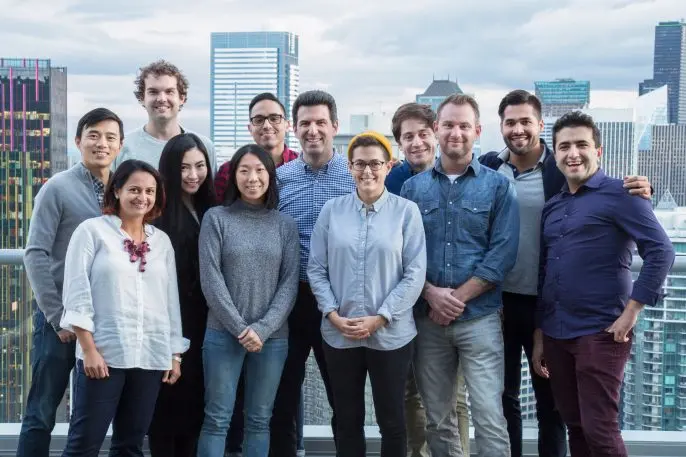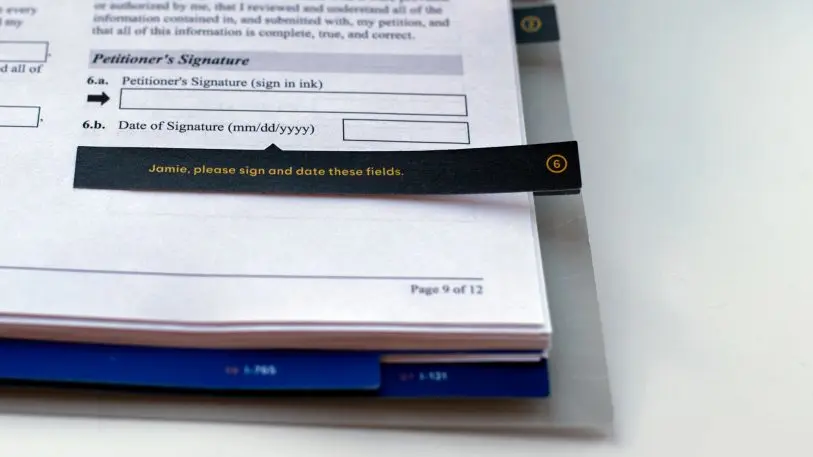This story is part of our Startup Resistance series, which profiles the entrepreneurs and activists addressing issues that have been neglected or opposed by the Trump administration.
When Xiao Wang arrived in the United States as a boy, his parents spent five months’ worth of rent money on lawyers to help with the family’s green card application. And in their community, everyone had a story to tell about navigating the maze of the United States Citizenship and Immigration Services, with its infinite forms, confusing questions, and thousands of dollars in legal fees.
“It was always assumed that immigration had to be difficult and it was a right of passage to stay in America to get through this system,” Wang says. “It was a tragic badge of honor to have more challenges through your process than other people.”

For Wang, this is just the start. By analyzing how different applications are processed–like how long it takes to hear back from the government in different parts of the country, or if certain extra documents will likely be requested even if they’re not explicitly required in the application–the Boundless team can start to anticipate how to build stronger applications. For instance, while the government may only require one year’s worth of tax documentation, Boundless includes the fact that the government actually wants at least three years.
“The current climate is too complex and changing too quickly for families to confidently get through the immigration process without help,” Wang says. “We are ensuring that the support, information, and tools that was previously only available to those who could afford thousands of dollars for lawyers are now accessible to everyone.”

Family immigration has also come under attack–Trump has denigrated the process by calling it “chain migration,” even though his wife’s parents used family immigration to become U.S. citizens. But even though it’s no longer in the news cycle, the policy changes to make family migration more difficult continue. Typically, USCIS adjudicators will send requests for more information if an application is missing something small. But after a September 2018 policy change, USCIS officials are more empowered to deny an application outright instead of asking for more info–and then keep the $1,000+ application fee as well, forcing a family to start the expensive, draining process over again. Another, more drastic policy change: Applicants typically get temporary status and are authorized to work while waiting for a permanent visa, even if their temporary visa expires during the wait. But now, if an applicant doesn’t have another, non-temporary type of visa and their green card application is denied, they could be deported immediately.
“It’s turned into a world where it’s never been more important to get the paperwork done right the first time,” Wang says.
As Boundless monitors the policy changes, it also keeping a rigorous blog and actively advocating for immigrant rights. Right now, there’s another policy change in the public comment period about which Wang’s cofounder Doug Rand has written an editorial in the Houston Chronicle. Previously, sponsors have to prove they have a certain amount of income so that the applicant won’t ever need to depend on the government. But the proposed “public charge” rule is making it even harder to get a green card, requiring the government to base its decision on a higher income hurdle–as well as other factors such as credit score and student loans. Practically, this means raising the amount of income a sponsor needs to have from 125% to 250% of the Federal Poverty Guidelines, which is about $41,000 for most couples without children. “That’s solidly middle class income,” Wang says. The company’s analysis shows the change would impact more than half of all Boundless’s users–and nearly 200,000 married couples in the United States each year.
For an immigrant applying for a green card, understanding the stakes here is crucial. Boundless’s blog is meant as a resource for all things immigration–when you Google “marriage green card,” one of the company’s how-to guides shows up before USCIS’s own page. “We have an important role in educating and informing people of what is happening and how it affects them,” Wang says. “We’ve been taking a more public role here around what this new policy means for families and what can you do to protect you and your family.”

The company was founded by Jeremy Peskin, a Canadian corporate tax lawyer who went through the green card process and was frustrated that–even as a lawyer–it was incredibly difficult to understand. He teamed up with the immigration lawyer that he hired to help him, James Pittman, in 2015 to build Borderwise. While Borderwise’s normal fee is $500, the company also provides pay-what-you-can services to all DACA visa holders. In 2016, Borderwise also offered use of its platform for $1 to anyone with a salary less than $30,000. “Obviously, users came flooding in,” Peskin says. “I was astounded by how many people were eligible for legal status and just hadn’t applied.”
That indicates a problem with our immigration system. “Even if you take the position that immigration is not an asset, fundamentally paperwork should not stand between an individual and a right they are legally entitled to,” Peskin says.
Through the $1 and DACA campaigns, the company has attempted to lower the barrier even further for low-income people and Dreamers–something Peskin plans to continue as the administration issues more and more policy changes, like the public change rule, to make it difficult for people to get legal status in the country. The company also provides their practice management software for free or at a steep discount to nonprofits like Neighbors Link and Prime Immigration Ministry, which are helping low-income immigrants.
“The fact that we’re able to put the technology in the hands of people with a low income–that is really a useful way of resisting this weaponization of income,” says Pittman.
Ultimately, it shouldn’t be a harrowing right of passage to legally become a permanent resident of this country, if that is your right.
“This idea that we want to help break down as many barriers as possible for people to be able to get the statuses that they are legally allowed to is something that appeals to everyone on both sides,” Wang says. “No one wants the amount of extra time and pain and effort and complexity and increased bureaucracy.”
Read more stories on the Startup Resistance here.
Recognize your brand’s excellence by applying to this year’s Brands That Matter Awards before the early-rate deadline, May 3.
